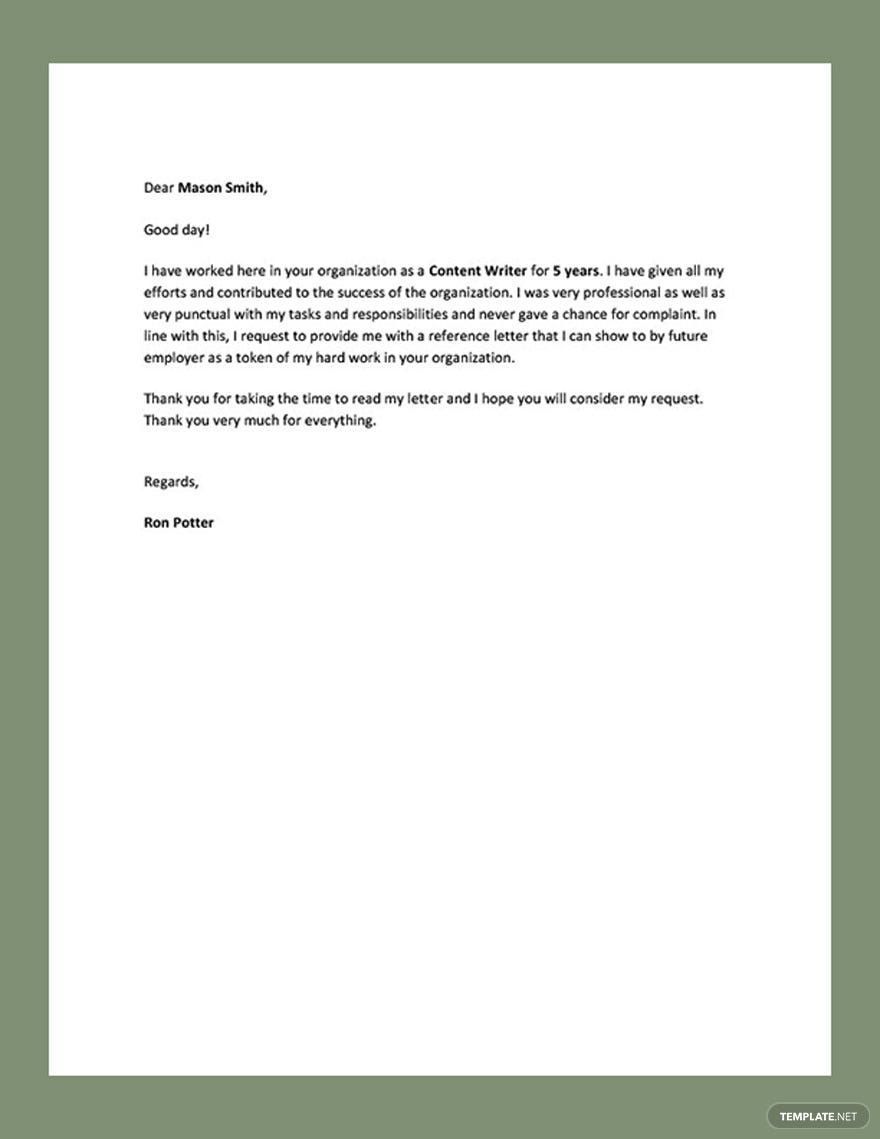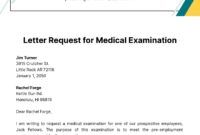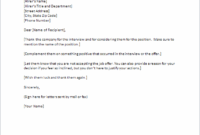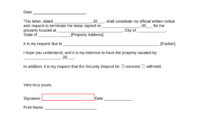Securing a great reference letter can often be the crucial element that sets your application apart, whether you are applying for a new job, an academic program, or even a scholarship. These letters offer a personal endorsement from someone who knows your work ethic and character, adding significant weight to your qualifications. However, knowing how to approach a former professor, manager, or mentor to request such an important document can feel a bit daunting.
That is where a well-structured approach comes in handy. You want to make the process as straightforward and respectful as possible for your recommender, increasing the likelihood of receiving a glowing and timely letter. Having a clear idea of what to say and what information to provide can truly make all the difference, and understanding the best practices for asking for a reference letter template can guide you effectively.
Crafting Your Request: Key Elements to Include
When you reach out to someone to ask for a reference letter, your goal is to make their task as easy as possible while also ensuring they have all the necessary information to write a compelling letter about you. A thoughtful and organized request demonstrates your professionalism and respect for their time. It also helps them tailor their letter to the specific opportunity you are pursuing, rather than writing a generic one that might not hit all the right notes.
Think of your initial email or conversation as a mini-briefing. You are essentially giving your recommender the tools they need to champion your cause effectively. It is about providing context, clarity, and convenience, all wrapped up in a polite and appreciative tone. This preparation ensures that they do not have to chase you for details, which could delay the letter or result in a less personalized endorsement.
Essential Information for Your Recommender
To ensure your recommender can write the strongest possible letter, you should provide them with a comprehensive package of information right from the start. This allows them to focus on crafting the perfect words, rather than gathering basic details.

- What specific job, internship, academic program, or scholarship you are applying for. Be as precise as possible.
- The exact deadline for the reference letter submission. Include the time zone if applicable.
- How the letter needs to be submitted (e.g., online portal link, email address, physical mail). Provide direct links or instructions.
- An updated copy of your resume or curriculum vitae, highlighting your relevant experiences and achievements.
- The job description, program brochure, or a brief overview of the opportunity you are pursuing. This helps them understand what qualities are being sought.
- A brief reminder of your relationship with them and specific projects, courses, or situations where you worked together. This jogs their memory about your performance.
- Any specific skills, qualities, or accomplishments you would like them to emphasize in the letter. For instance, if the job requires leadership, remind them of a time you demonstrated it.
Remember to express why you chose them specifically to write your letter. This personal touch reinforces their value and encourages them to put their best effort into the recommendation. Perhaps they witnessed your growth in a particular area, or their expertise aligns perfectly with the field you are entering.
Timing and Follow-Up: Mastering the Etiquette
The timing of your request is almost as important as the content of the request itself. Professional courtesy dictates that you give your recommender ample time to write a thoughtful and well-crafted letter. Rushing them often leads to a less personalized letter, or worse, they might decline if they feel too pressured by a tight deadline. A general rule of thumb is to give at least two to three weeks’ notice before the submission deadline, but more is always better, especially for busy individuals.
Consider their schedule and responsibilities. Professors often receive many requests around application season, and managers have their own demanding workloads. By providing sufficient lead time, you demonstrate respect for their commitments and ensure they can dedicate the necessary attention to your request without feeling overwhelmed. This proactive approach minimizes stress for both parties involved.
If, for some reason, you find yourself with a very short deadline, be upfront about it. Explain the situation briefly and politely ask if they would still be able to accommodate the request. Be prepared for them to decline due to time constraints, and have a backup plan. It is better to ask honestly than to spring a last-minute demand on them.
Once they have agreed to write the letter, your responsibility does not end there. A little follow-up can go a long way in ensuring the letter is submitted on time and expressing your gratitude.
- Send a polite reminder email a week before the deadline, just to gently check in and see if they need any further information from you.
- Immediately after they confirm the letter has been sent, or once the deadline has passed, send a sincere thank-you note. A handwritten note adds a lovely personal touch, but an email is perfectly acceptable.
- Keep them updated on the outcome of your application. Sharing your success or even your learning experience is a great way to maintain the professional relationship.
By following these guidelines for timing and follow-up, you cultivate a positive relationship with your recommenders. This not only helps with your current application but also strengthens your professional network for future opportunities. A courteous and organized approach, guided by an effective asking for a reference letter template, truly sets you up for success.
Approaching someone to write a reference letter might seem like a small detail in the grand scheme of an application, but it is a critical step that requires careful thought and respectful execution. By providing clear information, respecting their time, and maintaining open communication, you empower your recommenders to advocate for you effectively. This thoughtful preparation ensures you receive the best possible support for your aspirations, helping you stand out in a competitive field.



